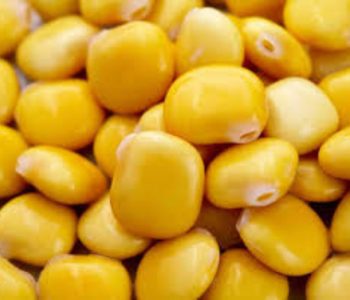🌾 Why Lupin Matters
Lupin is an underused crop with massive potential. Thanks to its high-quality protein—comparable to soy and superior to peas and beans— it is being recognized as a serious alternative to imported soya in both animal feed and human food.
Diversifying protein sources is not only key for food security, but also for achieving net-zero climate goals. Unlike soy, lupins are well-adapted to the climates of the UK and Canada, making them a promising local solution to reduce dependency on imports.
🔬 What the Lupin Loop Project Will Do
This project is designed to:
By strengthening the lupin supply chain and supporting its adoption, the project could transform the plant-based protein sector.
🌍 The Bigger Picture: Why Now?
The UK imports over 3.5 million tonnes of soy every year, much of it from Brazil. This contributes to deforestation and significant carbon emissions.
Lupin offers a homegrown, sustainable alternative.
“Lupin is the one species that you can grow that will genuinely replace soya protein.”
— David McNaughton, Managing Director, Soya UK
🧪 How the Research Works
The Lupin Loop project combines traditional field trials with next-generation tools like gene editing to improve lupin traits such as:
At the same time, life cycle analyses are being conducted to confirm that swapping soy for lupin would result in a lower carbon footprint.
🚜 Challenges and Opportunities
Growing lupin in the UK isn’t without hurdles. Weather variability has created unstable yields, particularly in heavy clay soils. However, trials show that even in northern England, white lupins can thrive.
Another key challenge is farmer adoption. Despite the crop’s potential, only ~2,000 acres are grown annually in the UK, mostly for livestock. As McNaughton notes:
“We have the varieties, we have the agronomy, and we have the economics—but we just don’t have the market.”
🌟 Planned Impacts
By the end of the project, Lupin Loop aims to deliver:
💡 Why Lupin Could Change the Game
If successful, this initiative will help reduce the UK’s reliance on imported soy, while providing a nutrient-rich, climate-friendly crop. With backing from leading partners in both agriculture and biotechnology, lupin has the potential to become a cornerstone of sustainable protein production.
Partners of the project include: SoyaUK, BioPower Technologies, UK Agri-Tech Centre, Lupin Platform, NRC Canada
Source: University of Leeds School of Food Science and Nutrition
